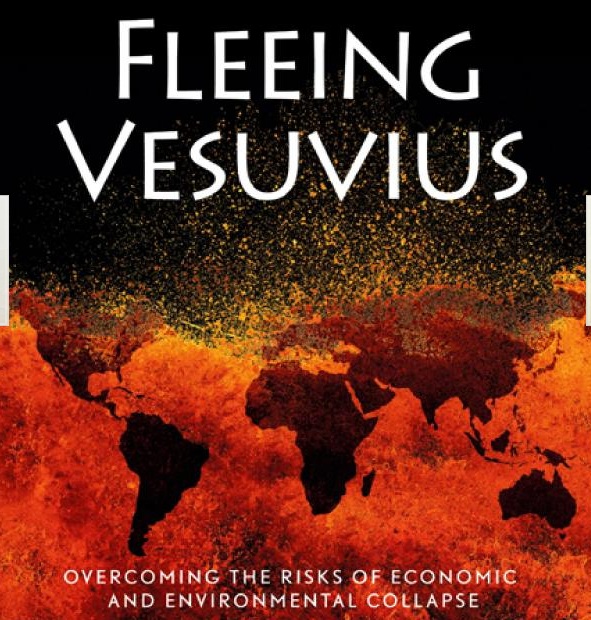
Have you heard……. failure is one of the biggest indicators of future success in an entrepreneur. Many venture capitalists won't invest in a new enterprise if the founder has never undergone failure – why?

Have you heard……. failure is one of the biggest indicators of future success in an entrepreneur. Many venture capitalists won't invest in a new enterprise if the founder has never undergone failure – why?
 Three-Dimensional Orientation Mapping in the Transmission Electron. This image shows the arrangement of crystals in a 150nm thick nanometal aluminium film. The crystals have identical lattice structure (arrangement of atoms) but they are orientated in different ways in the 3-D sample as illustrated by the labels 1 and 2.
Three-Dimensional Orientation Mapping in the Transmission Electron. This image shows the arrangement of crystals in a 150nm thick nanometal aluminium film. The crystals have identical lattice structure (arrangement of atoms) but they are orientated in different ways in the 3-D sample as illustrated by the labels 1 and 2.
The colours represent the orientations of the crystals and each crystal is defined by volumes of the same colour. The individual crystals of various sizes (from a few nm to about 100 nm) and shapes (from elongated to spherical) are clearly seen and mapped with a resolution of 1 nanometer.
(Credit: Image courtesy of Risø National Laboratory for Sustainable Energy)
ScienceDaily (May 16, 2011) — Scientists from Denmark, China and USA have developed a new method for revealing 3-D images of the structure inside a material.

The Art of Economic Complexity
A new way to visualize a country’s development.
By TIM HARFORD
Graphic by CÉSAR A. HIDALGO and ALEX SIMOES
New York Times, 11 May 2011
EXTRACT: Strip away the mathematical language of economists, and conventional theories of economic growth are rather crude. Economies produce “stuff,” and if you want more stuff to come out of the process, put more stuff in (like human capital, say). Yet economies do not produce stuff so much as billions of distinct types of goods — perhaps 10 billion, according to Eric Beinhocker of the McKinsey Global Institute — ranging from size 34 dark stonewash bootcut jeans to beauty therapies involving avocado. The difference between China's economy and that of the United States is not simply that China's is smaller; it has a different structure entirely.
Visit the MIT Economic Complexity Observatory
Phi Beta Iota: This is a very promising line of inquiry. It does not include the vital but poorly understood interactions among political-legal (integrity), socio-economic (fairness), ideo-cultural (education), and techno-demographic (balance), and natural-geographic (true cost, sustainability). As with most intellectual work these days, it is a thin slice across one dimension of very complex sphere–the world is NOT flat.

“Any coward can fight a battle when he's sure of winning, but give me the man who has pluck to fight when he's sure of losing. That's my way, sir; and there are many victories worse than a defeat.”
Posted by nate hagens on May 11, 2011 – 10:50am
Topic: Demand/Consumption
Tags: evolutionary psychology, human psychology, overconsumption [list all tags]
 The essay below is an updated and edited version of a post I wrote here a few years ago, I'm Human, I'm American and I'm Addicted to Oil. Richard Douthwaite, Irish economist and activist, (and a fellow at the Post Carbon Institute), invited me to contribute it as a chapter in the just released book Fleeing Vesuvius, which is a collection of articles generally addressing “how can we bring the world out of the mess it finds itself in”? My article dealt with the evolutionary underpinnings of our aggregate behavior – neural habituation to increasingly available stimuli, and our evolved penchant to compete for status given the environmental cues of our day. And how, after we make it through the likely upcoming currency/claims bottleneck, we would be wise to adhere to an evolutionary perspective in considering a future (more) sustainable society.
The essay below is an updated and edited version of a post I wrote here a few years ago, I'm Human, I'm American and I'm Addicted to Oil. Richard Douthwaite, Irish economist and activist, (and a fellow at the Post Carbon Institute), invited me to contribute it as a chapter in the just released book Fleeing Vesuvius, which is a collection of articles generally addressing “how can we bring the world out of the mess it finds itself in”? My article dealt with the evolutionary underpinnings of our aggregate behavior – neural habituation to increasingly available stimuli, and our evolved penchant to compete for status given the environmental cues of our day. And how, after we make it through the likely upcoming currency/claims bottleneck, we would be wise to adhere to an evolutionary perspective in considering a future (more) sustainable society.
Click here for the table of contents from Fleeing Vesuvius, followed by my article.
F-35 SELECTED ACQUISITION REPORT DISCLOSED
The latest annual report to Congress (pdf) on the F-35 Joint Strike Fighter Program details the soaring costs and deferred production schedule associated with the program. The report, which has not been publicly released, outlines total program costs from last year as well as per-aircraft costs and planned annual spending rates.
It's “a useful primer on the Pentagon's most expensive weapons program,” said one close observer of defense procurement.
A copy was obtained by Secrecy News. See the 2010 Selected Acquisition Report (SAR) for the F-35, April 2011.
Phi Beta Iota: Congress has abdicated its Article 1 responsibilities across the board, but particularly with respect to war and the cost of war. Coincident with the insanity of the US Intelligence Community claiming it can restrict the use of unclassified information in legal proceedings (See Drake Leak Case), what we have is a government that is “out of control” and incurring costs “in our name” that are unaffordable and often immoral as well as illegal. Transparency of true costs is a major foundation for sane democratic policies.

Phi Beta Iota: 10 more years of pain.
– – – – – – –
While the political elite obsesses over the rise in public debt, the US is on the cusp of an era of deleveraging — or more bluntly, a massive liquidation of private debt — the ramifications of which, in the best of times would be colossal, but could well be disastrous the irrational obsessions of our political elites work their magic.
The real policy question that will determine the future well-being of the vast majority of Americans is how liquidation of their private debts unfold — rapidly via rising waves of bankruptcies, foreclosures, and repudiations, as happened in the 1930s, or more gradually, which will require some kind of active intervention by government, and for which there is no real precedent, and clearly no acumen among the elites in Versailles on the Potomac.
Either evolutionary pathway will be painful, because the liquidation of private debt will require cutbacks that reduce aggregate demand and investment, thereby slowing growth and pushing the economy into a period of sluggish growth over the long term or into a depression (some economist argue we are already in a depression).
Continue reading “The Age of De-Leveraging is Just Beginning”

When times are right, things do start to move…
This Could be Big: Decentralized Web Standard Under Development by W3C
Imagine a web where our browsers connected directly to each other to do voice, video, media sharing and run applications, using P2P and real-time APIs, rather than going through centralized servers that controlled traffic and permissions. That's a potent idea and if implemented properly could future-proof a part of the web from authoritarian crack-downs, disruptions by disasters and more. It could also establish a permanent lawless zone of connected devices with no central place to stop anyone from doing anything in particular.
It just so happens that something like that may now be under development in the most official of venues. The World Wide Web Consortium (W3C) announced today the formation of a new Web Real-Time Communications Working Group to define client-side APIs to enable Real-Time Communications in Web browsers, without the need for server-side implementation. The Group is chaired by engineers from Google and Ericsson. It sounds like Opera Unite to me (see video below), but democratized across all browsers. It sounds like it could be a very big deal.